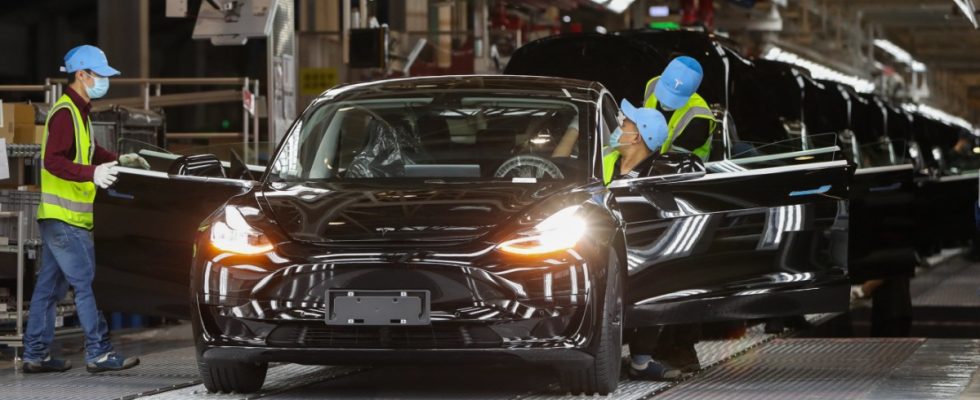Sometimes it makes a stronger statement not to show up at the hottest party of the year, even though you could have been the star guest. The decision by the electric car manufacturer Tesla to simply not use the most important stage in the world’s largest car market – the auto show in Shanghai – seems similar.
Where the German car manufacturers are currently struggling not to come across as so outdated among all the hip Chinese electric start-ups, the only foreign car manufacturer that has made it into the top lists of battery cars sold so far is missing. And these rankings, all experts agree, are the only important ones – because in China, more than half of all new cars will probably have an electric drive by 2025.
To understand the dimensions, here is a brief excerpt from the sales statistics for 2022: Behind the Chinese giant BYD with a market share of 28 percent, Tesla ranks second with 14 percent. VW comes to just five percent, a total of more than 80 percent of all e-cars sold come from Chinese manufacturers.
Why is Tesla so popular in China? There are both political and economic reasons for this. Unlike VW, BMW and Mercedes, for example, Tesla does not have a Chinese production partner, but builds its cars under its own management in its factory in Shanghai. It is thus the first beneficiary of a relaxation of the joint venture requirement with which China has been patronizing foreign companies for decades. Why did the Chinese leadership allow an American company to do this? “With Tesla, Beijing has gained a potential ally in Washington who is committed to economic relations with China,” says Gregor Sebastian from the China think tank MERICS in Berlin. And Tesla founder Elon Musk thanks it, for example by publicly speaking out in favor of the annexation of the democratically governed island of Taiwan by the communist mainland.
“The Chinese competition has become stronger in the long term.”
But in addition to political support, Tesla’s presence should also encourage Chinese manufacturers to become more innovative and stimulate the Chinese e-car market. According to Sebastian, that was also successful: “The Chinese competition – also through Tesla – has become stronger in the long term.”
Tesla built more than 700,000 cars in Shanghai last year, about half of its global production. And Musk just announced that he would also build a battery factory in Shanghai. As early as next year, so-called mega packs to be produced. These batteries are not needed for cars, but for large storage power plants. Criticism of this decision came from the USA. Mike Gallagher said he was concerned about the project the Reuters news agency. The Republican MP chairs the House of Representatives’ Special Committee on the Chinese Communist Party. But of course that doesn’t change anything about Elon Musk’s plans.
In the end, Tesla’s success in China depends above all on the cars themselves. Much of what the US manufacturer has relied on right from the start reflects the zeitgeist of the Chinese. The typical new car buyer there is in his mid-30s and loves all sorts of technical gadgets. In Germany, Tesla was initially smiled at for functions such as the fireplace on the screen. In China, such offers are the most important sales arguments for cars. Elon Musk’s credo that it’s not about the shell but about the inner workings – i.e. the software – is perfectly caught in the technology-driven Chinese market.
Tesla still has an ace up its sleeve
Incidentally, the assumption that the Chinese tend to avoid products from there due to the tensions between their home country and the USA and only buy e-cars from Chinese manufacturers out of local patriotism is wrong. Not only are Tesla cars a bestseller, but also other US lifestyle products such as Apple devices. And Musk’s image as an uncompromising visionary has at least as many fans in China as in the West.
The next two to three years will show whether Tesla’s popularity will continue as German – and Chinese – manufacturers catch up in software and infotainment. However, Tesla still has an ace up its sleeve: its profitability. The carmaker has lowered the prices for its cars several times in recent months, which cost up to 24 percent less than last September. With a profit margin of 17 percent, Tesla can afford such actions. For the other manufacturers, who have so far earned little or no money with their electric cars, this price war is difficult to endure.

